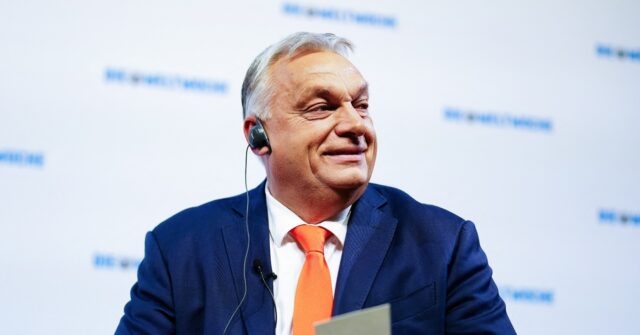Hungarian Prime Minister Viktor Orbán recently expressed his conviction that Donald Trump could swiftly broker a diplomatic resolution to the ongoing conflict in Ukraine if he were to return to the White House. Speaking alongside former German Chancellor Gerhard Schröder in Vienna, Orbán asserted that Trump’s team would quickly engage in negotiations with Russian President Vladimir Putin. He emphasized that while the European Union (EU) may not play a major role, Hungary is preparing for the potential diplomatic shift that could arise from a Trump victory in the upcoming election. Orbán’s remarks underscore his strong alignment with the former U.S. president, positioning himself as a champion for dialogue between Russia and the West.
Orbán criticized the EU for what he perceives as a misguided understanding of the situation in Ukraine. He declared that the war is essentially unwinnable for Ukraine and urged European leaders to acknowledge this uncomfortable reality. Orbán’s comments reflect a broader frustration with the EU’s stance on not communicating with Russia, labeling this position as “barbaric” and a reflection of diplomatic ignorance. He articulated a pressing need for Europe to reassess its approach, especially in light of the escalating conflict and the implications of continued military support for Ukraine without a willingness to consider dialogue with Russia.
Although he highlighted the need for immediate negotiations, Orbán clarified that the initial discussions would not aim for a comprehensive peace treaty. Instead, he stressed the urgent necessity of achieving a ceasefire to halt the ongoing violence. In a parallel sentiment, Schröder defended Orbán’s calls for ceasefire talks, arguing that European leadership should not criticize Hungary’s outreach for peace. He suggested that EU leaders ought to support Orbán’s efforts in this regard rather than dismiss or ridicule them, emphasizing the need for dialogue over confrontation.
Schröder also echoed Orbán’s perspective on the potential for Trump to facilitate peace in Europe, admitting to his reluctance to support a Republican candidate but finding merit in Trump’s proposed approach. The former chancellor has faced scrutiny over his business dealings with Russian energy firms, yet he connected current geopolitical tensions back to a missed opportunity for an early peace resolution that was undermined by former UK Prime Minister Boris Johnson. This commentary points to a broader discussion about the intricacies of international diplomacy and the roles played by various political figures in escalating or de-escalating conflicts.
Amidst these discussions, Orbán contended that Ukrainian President Volodymyr Zelensky has been an impediment to peace talks, asserting that Zelensky prefers to continue the conflict rather than pursue negotiated solutions. This assessment raises questions about the internal dynamics within Ukraine and its leadership’s strategic choices in dealing with Russia. Furthermore, Orbán referenced Trump’s own claims of negotiating a ceasefire even before his official inauguration, indicating a proactive stance that could dramatically alter the diplomatic landscape surrounding the Ukraine crisis.
Orbán hinted at potential strategies for negotiations, suggesting that a reduction in U.S. aid to Ukraine could be a leverage point in coaxing Zelensky to the negotiating table. This position reflects a broader belief that economic pressures could facilitate a shift in the Ukrainian government’s approach to the conflict. As Orbán and Schröder advocate for a return to dialogue and diplomacy, their statements underscore the complexity and multi-faceted nature of international relations, where the need for peace often collides with entrenched political interests and historical grievances.

